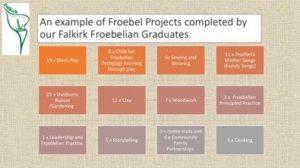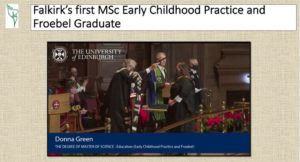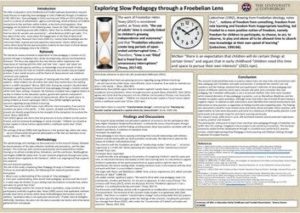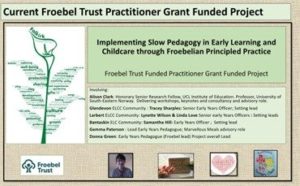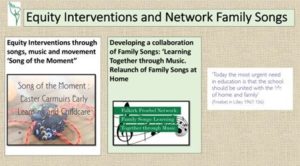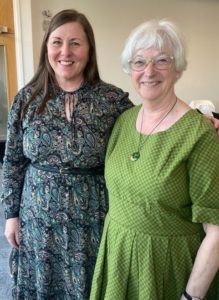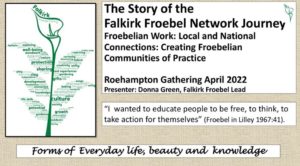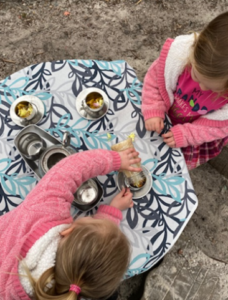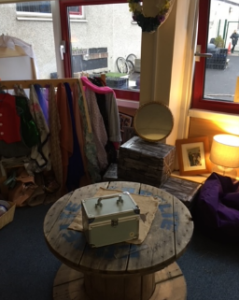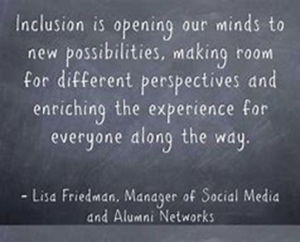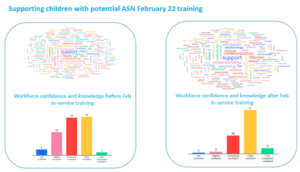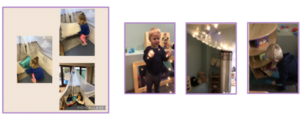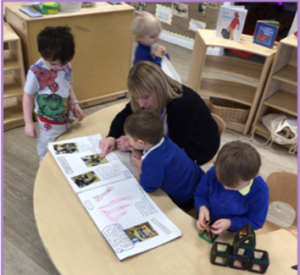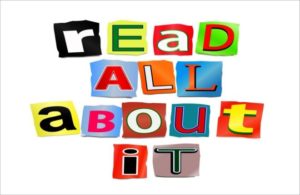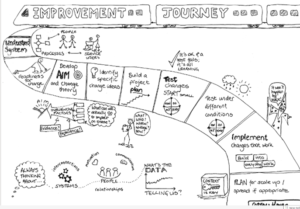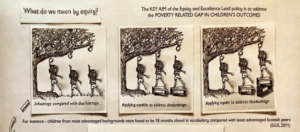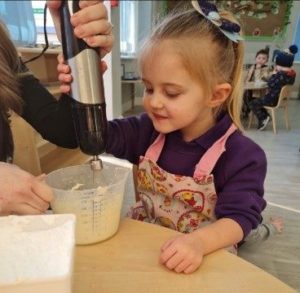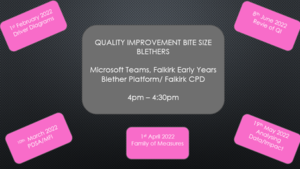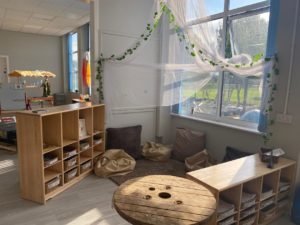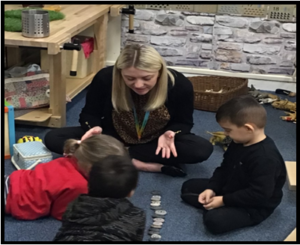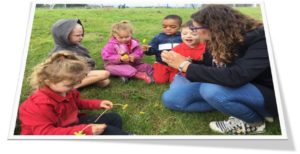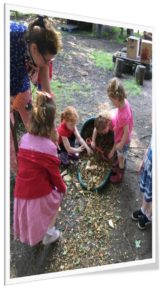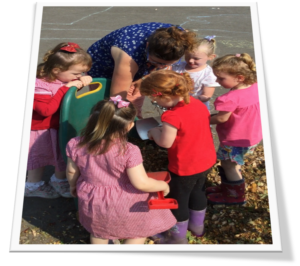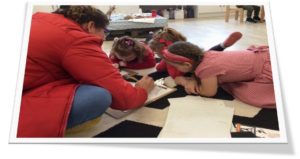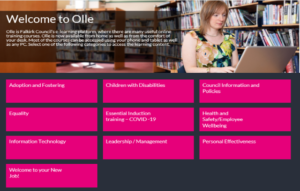I am going to begin by ‘pondering’ over the privilege of having a lead Froebelian role within Froebel in Falkirk. However, for me I am led by the children through the concept of ‘freedom with guidance’ with a strong shared vision where I am guided by my values which are underpinned and lived through Froebelian Principles. It is also extremely important to share I am one of many leaders within our Falkirk Froebel Family and early years community as we are all leaders in our own right where there is equal autonomy and relationships do truly matter. Central to our Froebelian approach is to collaborate, as we live and learn together from one another which includes our youngest wee people, practitioner’s, families, communities embracing a diverse, equitable culture, that respects the environment we live in and with.
Falkirk Froebel Family
Currently we have 155 Falkirk Froebel Family Froebelians
We have 34 Falkirk Early learning and childcare and school settings with trained Froebelian’s who have completed the University of Edinburgh Froebel and Childhood Practice Course.
Currently there are a further 45 funded places for 2022-23 and Falkirk applications have been submitted.
Each Falkirk Froebelian creates a wonderful Froebel project within our Falkirk settings and communities:
There have been many highlights throughout the year but here are a few:
In November 2021 I Graduated with a MSc in Early Childhood Practice and Froebel where I focused my dissertation on ‘Exploring Slow Pedagogy through the Froebelian Lens’.
Froebel and Slow Pedagogy
Following on from my dissertation this year, I have been leading a Froebel Trust funded project on Implementing Slow Pedagogy in ELC through Froebelian Principled Practice. This has involved working with three of our fantastic Falkirk ELC communities: Bantaskin ELC, Larbert ELCC and Glendevon ELCC along with having the pleasure to learn from and with Professor Alison Clark whose Froebel Trust research ‘Slow knowledge and the unhurried child” was drawn on to support thinking. This has been an amazing way to collectively collaborate and learn together across our communities. I would invite you to consider learning more about slow pedagogy and what this looks like in your community. I have given a snapshot of some of our project below, please view using the QR code.

Senior Early Years Officer – Equity Coach
In addition, having the pleasure of supporting SEYO’s through an Equity Coach remit has been a wonderful journey. One of the many positive benefits is the impact and joy ‘Song of the Moment’ is having within the Easter Carmuirs early years community. Where this has very much been a process of starting with the child which embraces the many benefits singing can bring through play and real-life experiences for every child. This has drawn on much of the collaboration of Family Songs and Froebel’s Mother Songs pedagogy/philosophy.
Family Songs: Learning together through music
This year relaunched Family songs at home to promote a learning together resource to use at home, in early learning and childcare and throughout our communities. A collaboration created by Falkirk Froebelians, Fab Falkirk Folk, Speech and language therapy, YMI to share and use across our communities.
Click the link for an example of our latest Family Songs sway and we welcome everyone to use this resource: https://sway.office.com/MqgXvYcyNF8hMOwx?ref=Link
Froebelian Futures
This year Falkirk were invited to be part of the fabulous Froebelian Futures project, which is in partnership with The University of Edinburgh, Cowgate Under 5’s centre and funded through the Froebel Trust. It aims to provide ongoing Froebelian training as a progression pathway following the Froebel in Childhood Practice course where I have responsibility as the local authority lead with this course:
So far in 2021-22; 5 x Falkirk settings and 10 x Falkirk Froebelian practitioners and leads have completed or on route to finishing this Practitioners Inquiry course, which has been going on throughout the year. It has given the practitioners and leads the skills and confidence to carry out action research within their establishments and they have produced some wonderful research on “Froebel for Families”,” A Froebelian Approach to Observation”, “Embedding Froebelian Principles in a Progressive Play Pedagogy”, “Are We Seeing the Super in Superhero Play?” and “Making Children’s Participation and Perceptions Matter”. Please click the link to the Froebelian Futures website to find out more: https://www.froebel.ed.ac.uk
If you would like to follow Froebelian Futures on Twitter their handle is @froebelfutures
Current applications are in the process for Falkirk Froebelian’s carrying out this course in 2022-23
Froebel Gathering
Delighted to be invited by Professor Tina Bruce to share Falkirk Froebel Family Network Journey at the London Froebel Gathering. Lots of wonderful feedback and fabulous connections made.
Please scan the QR codes to see some examples of Froebelian Practice across Falkirk 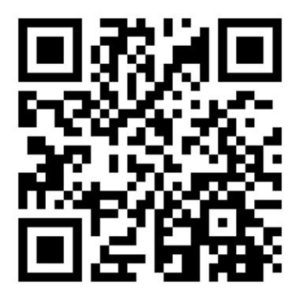
By Donna Green

